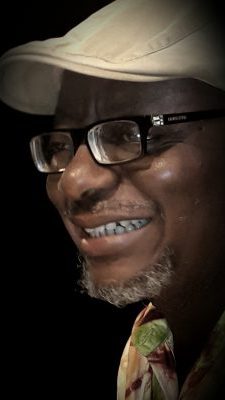
Everything comes to him who waits, except a loaned book ― Kin Hubbard
By Olayinka Oyegbile
It was one of Nigeria’s most well-kept literary secrets. In fact, I can even wager that it could perhaps have been the world’s. That was until a few weeks ago when my friend Maxim Uzoatu, the one we call “God of Poetry”, after his collection of poems of that title, made it public. Until Maxim wrote about it, not even Nobel laureate Prof Wole Soyinka ever gave an inkling that a novel, his third, was in the works. It was kept close to his chest. Maxim being a notorious character and a former student of the Nobel laureate must have sniffed it out with the same dexterity and tenacity with which he sniffs out larger and nkwobi joints. Thank you, God of poetry, for this.
Even while travelling around the world or at various literary rendezvous, our own WS never dropped a hint that such was in the works. The hints out there are that he wrote the new novel during the long Covid-19 lockdown. We are beginning to see some of the ‘sweet’ results of the pandemic. As the immortal William Shakespeare (the other WS) wrote, “Sweet are the uses of adversity.” Coronavirus would surely yield more literary and creative results in the years ahead.
I am sure many were surprised when Maxim announced that Chronicles of the Happiest People on Earth was the first novel from the Nobel laureate in forty-eight years! Any child born when the last novel Season of Anomie was published must by now be approaching grandfather/motherhood! When Maxim made the revelation, a mutual friend called me to alert that he had caught our friend pants down. However, on reading the piece further he called back to say he was wrong and Maxim was right. He had wrong footed Maxim because he felt WS had not stopped writing and had been publishing all these years. But on reading the piece in full he knew he was wrong. What Maxim was talking about was a novel and not a memoir, essay, play or a collection of poems, of which our WS is a master.
Many were caught in the same light with our mutual friend. It is surprising to a few that he has only written two novels before now. But WS has been known more for his plays and poetry than novels. Many of us first encountered him through his poems on the pages of A Selection of African Poetry edited by Senanu and Vincent, which was a required text for poetry during our secondary school days. It was much later that his plays such as Lion and the Jewel, The Trials of Brother Jero, Kongi’s Harvest and others flittered to us either on stage or as texts for the Literature in English classes.
Since Maxim made that ‘world exclusive’ revelation, the literary world has been agog waiting to read what he has inside those pages at over five hundred as announced by his publisher. It is heart lifting that the first right of publication is indigenous. Nigerians will have the first taste of the pudding before it goes to other parts of the world.
Soyinka’s first novel The Interpreters (1965), Published under the imprint of the now rested African Writers Series, remains one of the toughest in that genre. The opening salvo “Metal on concrete jars my drink lobes” was a quote most of us in my secondary school days knew off heart to show off that we read the book. Yes, indeed, we did read it but ask for the story line then we look lost.
Season of Anomy (1973) is less dense and complicated in language and construct. It is the story of a community that finds itself in the grip of corruption by its elite and how to redeem its soul. It speaks to the time and even our country’s present condition. There is no debate about it that WS’ reputation as a novelist is not as sterling as it is in other genres of literature. This is not a drawback owing to the fact that Chronicles is only the third in this genre, and you can’t fairly judge a master of other genres with only three books.
However, his reputation is indisputable in drama, poetry, memoirs/biographies, diaries, essays and political interventions. No serious student of literature will fail to notice such powerful plays as Death and the King’s Horseman, Kongi’s Harvest, The Strong Breed, Opera Wonyosi and a corpus of his other plays which made the Nobel Committee in 1986 when he won the prize to say he “fashions the drama of existence.” His poetry is also in a class of its own in terms of depth, imagery and lucidity. Think of the profundity in Procession I – Hanging Day, Abiku, The Telephone Conversation and many others. What about his memoirs/biographies – The Man Died, Ake Years of Childhood, You Must Set Forth At Dawn. Not to forget his essays and interventions from time to time in the affairs of the nation.
Most writers at the twilight of their lives, often turn their back on fiction and write more memoirs and essays. Soyinka, in his characteristic manner, has made a difference by making a grand return to fiction after nearly half a century. So, as the world awaits the publication of his third novel, I am sure many are waiting with bated breath to savour this offering. After reading the excerpt that has been made available by Bookcraft, his Nigerian publisher, I am happy to join the millions around the world waiting to receive the new baby later this month.
And as the reputation of the laureate is with red wine, this is surely going to be a helluva of an adventure judging from the extract. Welcome to the fictive world of our own WS. Get your cup of wine, or any of your favourite drink by your wide while we wait.


